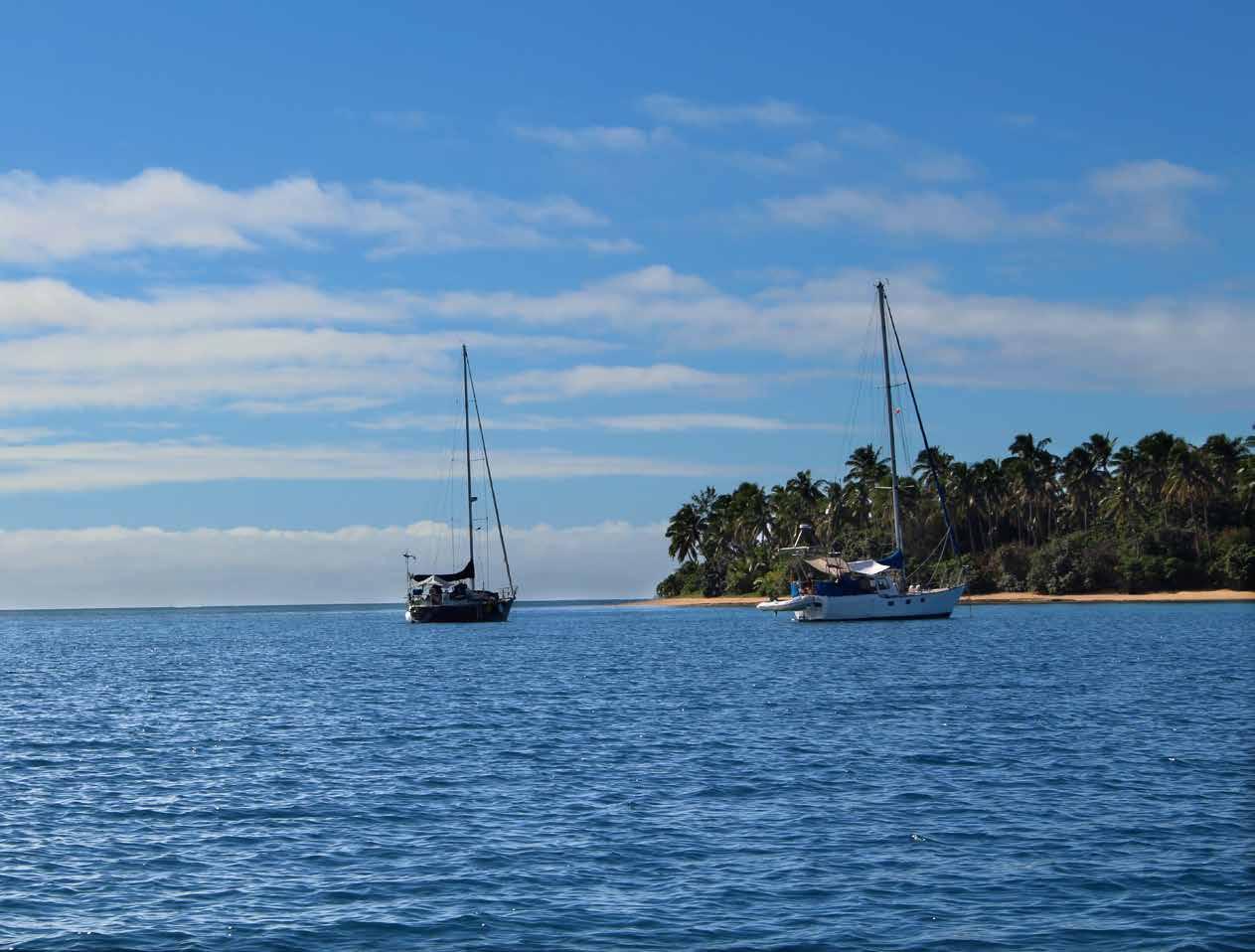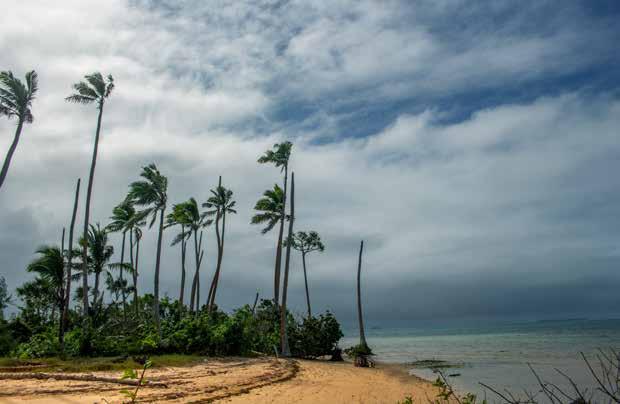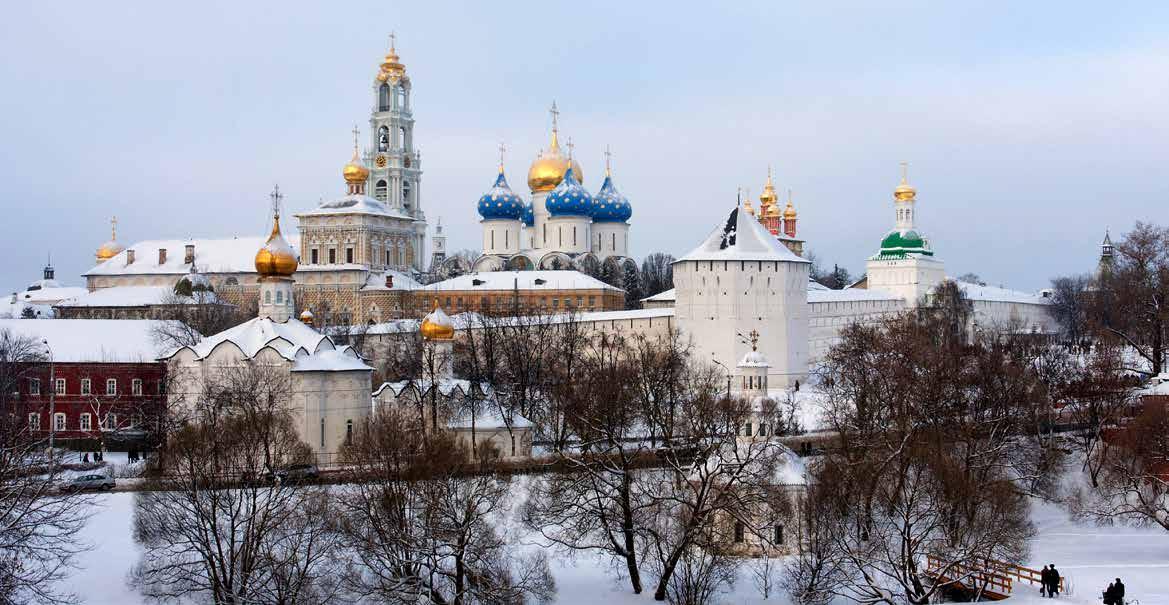
8 minute read
Expanding Horizons
The USPG Expanding Horizons programme provides clergy who want to travel overseas on sabbatical, ordinands who are planning an overseas placement, and other church workers the opportunity to experience and share in the life and mission of the world church.
SPG offer a small grant and help arrange a placement where required, ranging from one to six months. This can be anywhere in the world where USPG has links with the Anglican Church. Here, three people share their Expanding Horizons experiences: U
REV’D JAY NIBLETT TRAVELLED TO THE NETHERLANDS When the opportunity came for a summer placement somewhere outside of the UK I jumped at the chance! I wanted to find out what God was doing in the Anglican Communion - particularly in the Netherlands,
where secularism presented a particularly potent challenge to the Christian identity and the great commission to proclaim the gospel and make disciples. USPG was incredibly supportive of this venture, helping with travel, genuine interest and continued support even after I returned.
During my placement I shadowed the Chaplain of Amsterdam and was involved in the spiritual life of the chaplaincy. It was great to see the diversity in the different gatherings and to see how the English language and Anglican spirituality could be a positive uniting factor amongst peoples from all over the world. It was also great to see how
people from different cultures could be united and creative with Anglican liturgy, bringing their own style to it yet still maintaining its familiarity. I had the opportunity to preach and lead the different church communities in prayer. I also spent a lot of the time listening and learning from key people looking at mission in Amsterdam and considering the challenges they are facing in making the gospel known outside of the church walls. These seemingly simple conversations were the aspect of my placement that provided the most fruit. I especially relished my time with Rev’d Alan Strange whose dedication to his calling and Tim Vreugdenhil whose bold and creative approach to mission was inspiring! One pressing challenge was the need to counter the church’s diminishing influence on the shaping of society and consequently faith retreating into private life. In one sense this reflected the worrying demise of the church as a worthy contender in the realm of plausibility structures–ways in which people can make sense of the world around them and shape their life.

Yet on the other hand the energy and commitment these conversation partners were demonstrating gave a real sense of hope that the church still had plenty to share in the lives of the people of Amsterdam. They still believed that the good news of Jesus Christ is a message that needs to be heard and this is true regardless of where a country lands on the ‘Better Life Index’. The emphasis may be different but the good news if it is the good news, is a message of hope for all.
I am invested in their challenge as the church is finding ways of breaking outside of the safety of the home and church buildings. It is no new revelation that the Church of England is increasingly losing its voice in the shaping of culture, and that much louder, secular and divisive voices are continuing to grab people’s attention. The church’s role is to proclaim the truth in a world of truths. The church must live out all five marks of mission, especially the first two. What the Church in Amsterdam discovers and the ground they break will be very helpful for us as we take on the same challenges in the UK.
REV’D DIANE WHITTAKER TRAVELLED TO FIJI It seems a long time ago, now that I began to plan my sabbatical break, without much idea as to what I wanted to do other than spend some time in Northumberland and visit a friend in Australia. Whilst mulling over options, I attended the Diocesan Minister’s conference in November 2017 and got talking to Habib, who was representing the USPG at the conference exhibition. He talked to me about the Expanding Horizons programme for clergy and when I mentioned I wanted
Opposite: Seashore in Fiji. Credit: USPG/Naomi Herbert Pictured left: Museum De Vale, Leiden, South Holland, Netherlands. Credit: Jay Niblett

to visit Australia as part of my sabbatical, he suggested Fiji as a place I could visit with USPG sponsorship – so the die was cast. I applied for a place on the Expanding Horizons programme, which was offered to me in January 2018 along with some sponsorship funding. During the following year, I firmed up my proposal, which began to have an eco-theology theme to it and finally received approval for my visit from the Anglican Church in Fiji at Easter 2019.
Eventually, in September 2019 I landed at Nadi Airport on Vanua Viti and began my five week placement with the Fijian Anglican Church. It was a little different from most Expanding Horizons placements, as I had a research topic rather than a ‘job’ placement. I began my visit by spending some time at the MAST, the Anglican Headquarters in Suva and had some meetings with representatives of the Anglican, Catholic and Methodist churches were we discussed climate change and how the church was preaching and acting on a message of care for creation. After this I stayed at Dreketi on Vanua Levu as a guest of Bishop Henry Bull for three weeks and preached and met people in the churches at Savusavu and Naviavia, as well as Dreketi, before returning to Vanua Viti for a final week in Nadi, visiting town and rural churches and communities affected by climate change. I was privileged to preach on most of the Sundays I was in Fiji – beginning with the cathedral in Suva and ending at St Christopher’s in Nadi. Each community I visited was welcoming, and I was really taken by the enthusiastic singing in church. It was interesting to see how liturgy so similar to that of the Anglican church in England can be taken and given a completely different feel in a different culture.
The placement affected me in many ways; I had time to think, read and reflect and also to experience a very different Christian and cultural context. Christian faith in Fiji still feels new and fresh, and this is linked to a cultural emphasis upon community and family and also connection to the land. I was told several times: ‘Fijians are farmers at heart’. All of these experiences I am now carrying with me into my daily ministry, along with an increased passion for preaching and teaching about the importance of caring for God’s wonderful creation. My horizons were definitely expanded!
REV’D TOM MUMFORD TRAVELLED TO RUSSIA One of the most attractive and important facets of the Gospel, I think, is generosity. And that is because it is at the very heart of God and his love for the world. Generosity is

something that when truly offered, does not diminish a person or an institution, just as it does not diminish God. But instead enriches them allowing them also to flourish and in doing so this transforms them as they reflect the love of God back at the world. USPG has done just that.
From my first enquiry and initial conversations, nothing but generosity has been offered. I would like to thank USPG for their financial and spiritual contribution, because without these, my experience of the Church in Russia would not have been possible, and what I have learnt about the generosity of God would not have been so fully realised.
My overwhelming experience, and lasting impression of the Church in Russia, was one of great generosity. And this is because it was a reality in abundance at every turn. At every place visited, from the monasteries and the parish churches to the Anglican chaplaincy in Moscow, amazing warmth, hospitality and friendship was offered and it was beautiful. This I think, is because the people of Russia and in particular those committed to a religious vocation, really do take the Gospel and the mission of God seriously. For them, to give to others and to really live the Gospel is absolutely vital. Being a Christian doesn’t just mean turning up on a Sunday. And this is hardly a surprise - because there was a time when really living their faith could cost them their life.
It is easy to forget that Russia is a country where in living memory, Christianity (and indeed all religion) was illegal. Millions died for it. Thankfully, their God knew a way out of the grave and so their Church followed. Their mission now it seems, is to live this on the ground and this was summed up for me most fully, on the last day when visiting the Novopassky monastery. During yet more warm and generous hospitality, one of the monks wanted to remind us that although we were yet to break bread together in church, we needn’t be scared of one another. For them he said, the dinner table was the second alter and we could feast together there. And he was right. For over such banquets (and they really were) we were able to listen to one another, to learn, and to grow in love. These are after all, the fruits of real Eucharistic hospitality and true generosity.

Opposite top: Diane Whittaker in Fiji. Credit: USPG/Naomi Herbert Opposite: Seashore in Fiji. Credit: USPG/Naomi Herbert Pictured above: Trinity Lavra in Sergiyev Posad, Russia. Credit: Sergey Ashmarin/Creative Commons








